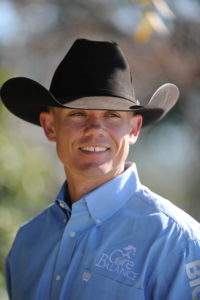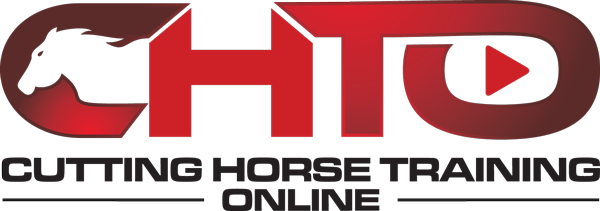 Total Earnings: $452,273
Total Earnings: $452,273
An apprenticeship to an equine chiropractor brought Hayden Upton to the United States from Australia 22 years ago. He grew up around horses but it was through working on cutting horses that drew him into the sport as a trainer. Upton had worked for Gerald O’Brien in Australia where he learnt how to break horses of all disciplines from thoroughbreds to kid’s ponies but he never worked for a cutting horse trainer.
Upton would travel to ranches to administer chiropractic treatments to cutting horses and end up staying an extra day to watch the training and glean knowledge. Upton has developed a renowned two year old program with top horses such as High Brow Jackson, Metallics MVP, Hickory Holly Time, One Alley Cat just some of the graduates. He has produced Western Bloodstock futurity sale toppers and made numerous aged event finals including the NCHA Futurity.
When Upton is not training horses he studies what makes people successful at the elite level. He reads a lot of mental preparation books and said having the right mindset is what creates champions and success in life.
“The level they hold themselves to and the standard is much higher. They are fanatical about it.” It’s a subject that fascinates and inspires Upton. “It’s so humbling, it’s so enjoyable. Just to be a part of it and compete with them and knowing the level it’s at, knowing the guys that you’re competing against, knowing what’s gone into [their success], it’s so cool. You can not underestimate it.”
What is your most memorable moment?
“I was in California chiropracting full time. My wife, Summa, and I came to Texas for the Super Stakes. And I remember watching the ⅚ finals [in 2003]. I remember watching Tag Rice and…I had no idea that was even possible. I had no idea that horses could even do that. That was hands down the most memorable cutting horse moment.”
What is your training philosophy?
“To get your idea to become their idea. Whatever the maneuver is horse training wise, if I can get 100% of the horse’s commitment to that, that’s as good as they can be. Whatever the individual is, if the individual is capable of marking a 75 or a 72 if I can get 100% of their involvement to the job, I’ll have the very best of them.”
What have you learned or adjusted in your program in the past year?
“Although cutting and reining are two different events, I think I’ve learned in the cutting, as in the reining, for a horse to really stop good he has to go to that stop well. If you want him to stop more sudden and stop better and quicker, I’ve placed more importance on going to the stop freely so he can hit a sudden stop. In reining, the quality of the stop has so much to do with the purity of the run. My focus the last few years has been getting the horse keeping up in the go part. I want them to stop faster but it’s hard for them to stop faster if they’re not going to that stop quicker…”
Upton thinks about it like a push bike. If you want to make a skid you’ve got to go faster to make that skid more exaggerated. He said that it can be a bit intimidating really moving across the pen if the horse doesn’t stop well.
“In search of having it be really good you have to push those boundaries of getting across there and that’s what is going to either make it good or not good. If it’s not good, you deal with that… Staying scared of going will never make that stop better.”
What inspires you?
“The difference in the animals…It’s the things they do that inspire me…It’s being able to feel what we always strive to feel. When it comes together on a really good horse, when it’s capable of doing the God given things that the good ones do. Maybe it’s as simple as a two year old catching a cow through a turn when you’ve got 25 other two year olds that don’t do that. That’s the thing that makes me want to keep riding more horses and buying more horses and educating myself more.”
You’ve had success in the Sale Pen at Western Bloodstock and in Will Rogers, how does the feeling compare?
“I had a different introduction to the sport. Early in the sport, that was my competition. I didn’t have a deep show string; it just takes time. Being able to buy my own horses and showcase my product in the sale pen was a competition to me. It’s the same feeling [in Will Rogers]…It’s a neat feeling of showcasing a really good horse that’s capable of doing really cool things and seeing it recognized. [In the sale pen] you have 500 judges instead of five [when you’re showing] so…it’s rewarding that the best people in the business recognized that product to be what you hoped it was…”
How do you define feel?
“Feel is being able to take in the information that comes to you and being able to process it in a way that leads you in a direction going forward…I think of feel like digging a hole when the ground is really hard and you’re using the digging bar. You may be digging in one spot but you don’t just keep pounding and pounding, that’s zero feel. Feel, is you try to dig in one area and you can clearly see that the feedback you’re getting is your regaining nothing so you move to another area. Then you may see a little crevice and you’re breaking through….You just feel your way through that…
“Horse training is very much that way. And I think feel comes from knowledge… And the understanding should help you teach feel… I don’t want to teach you what to do, I want to try to teach you an understanding so you can navigate your own way through it.”

